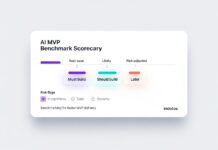In the dynamic world of restaurant management, efficient labor scheduling is essential to maintaining smooth operations and meeting customer demands. Restaurant owners often face challenges in managing staff schedules manually, which can be both time-consuming and prone to errors. Recognizing this, we took on the task of integrating SpotOn’s point-of-sale (POS) system with HotSchedules, a leading labor scheduling provider. This integration aimed to automate and streamline scheduling, transforming the way restaurant managers approach labor management. The success of this initiative not only benefited our clients by easing management burdens but also positioned SpotOn as a top client on HotSchedules’ roster.
Overview: Automating Labor Scheduling for Improved Restaurant Management
For restaurant owners, the integration of POS with scheduling systems represents a significant leap toward more effective management. With this integration, SpotOn provided restaurant managers with a tool to automate labor scheduling, reducing the manual workload and enhancing the accuracy of staff planning. The integration was designed to deliver immediate operational benefits, supporting hundreds of restaurants within the first two weeks of deployment.
Key Problems Solved: Streamlining Operations and Data Management
The integration tackled several key challenges that restaurant owners face in managing labor:
- Manual Labor Scheduling
Traditional scheduling methods are time-intensive and often lead to scheduling conflicts or overstaffing. This integration automated the scheduling process by enabling restaurant owners to manage shifts based on real-time data from their POS system, allowing for optimal scheduling decisions without the manual hassle. - Data Management and Backup
A critical element of this project was establishing secure data transfer and storage. Our solution ensured that scheduling data was consistently backed up and easily accessible, providing restaurant managers with reliable records and a safety net in case of system failures. - Rapid Deployment and Adoption
A quick turnaround was essential for delivering immediate benefits to clients. Our integration was deployed in hundreds of restaurants within two weeks, allowing owners to begin experiencing improvements in labor management right away. This rapid deployment allowed restaurant managers to quickly shift from manual processes to a streamlined, automated scheduling system.
Technical Implementation: Building a Secure and Scalable Solution
To develop a secure and effective integration, we utilized Go as the primary programming language, due to its efficiency and compatibility with our technical requirements. The technical implementation involved several core components:
- Service Development in Go
Leading the development of the integration service, I used Go to securely FTP data to HotSchedules’ integration servers. Go’s scalability and concurrency features allowed us to handle large volumes of scheduling data quickly and efficiently, making it ideal for this high-demand integration. - Secure Data Transfer Protocols
Ensuring the security of sensitive information was a top priority. We established a secure FTP connection to transfer scheduling data, compliant with industry security standards, to protect the integrity and confidentiality of staff information. - Data Handling and Storage on AWS
For data reliability and redundancy, we created local zip files and stored them in an S3 bucket on AWS. This process included gathering complex data from MongoDB, converting it into flat files, and then storing these backups securely. This approach ensured that restaurant owners always had access to up-to-date and backed-up data. - Query Optimization in MongoDB
Retrieving relevant scheduling data from MongoDB required developing complex queries. These queries were optimized to ensure accurate and fast data extraction, ensuring that restaurants received up-to-date scheduling information with minimal delay.
Outcome: Enhanced Efficiency and Reliability for Restaurant Owners
The impact of this integration has been transformative for our clients. By streamlining labor scheduling, restaurant owners experienced:
- Operational Efficiency: The automation of labor scheduling reduced manual input errors and allowed managers to focus on more strategic areas of their business.
- Improved Data Reliability: Secure data handling and backup processes meant that owners could trust in the reliability and accuracy of their scheduling data.
- Immediate Benefits: The rapid deployment allowed hundreds of restaurants to quickly adopt the integration, leading to improved operational efficiency and reduced management burdens from the outset.
Looking Forward: The Role of POS Integration in Future Restaurant Management
The integration of POS with scheduling solutions such as HotSchedules exemplifies the potential for data-driven efficiency in restaurant management. This project highlighted the value of combining real-time POS data with automated scheduling to support more agile, adaptive labor management. Moving forward, I believe that further innovations in POS and scheduling integrations—such as AI-driven predictive scheduling—could enhance restaurant management even further, allowing owners to optimize staffing in ways that adapt to changing customer demands and operational needs.
This experience reinforced the importance of secure, scalable technology solutions in improving operational efficiency and reducing administrative burdens in the restaurant industry. As the digital transformation of the hospitality sector continues, integrations like these will play a crucial role in shaping the future of restaurant management, allowing owners to focus on delivering exceptional customer experiences.





















